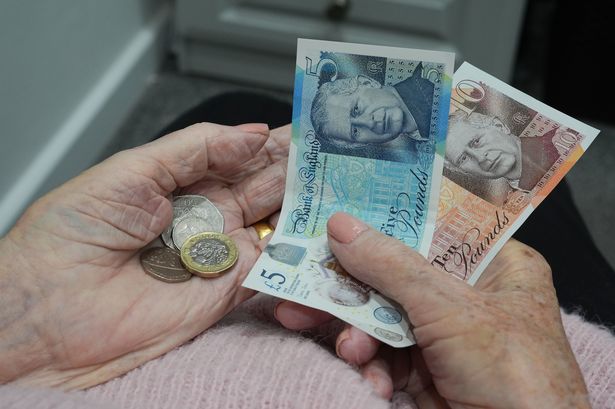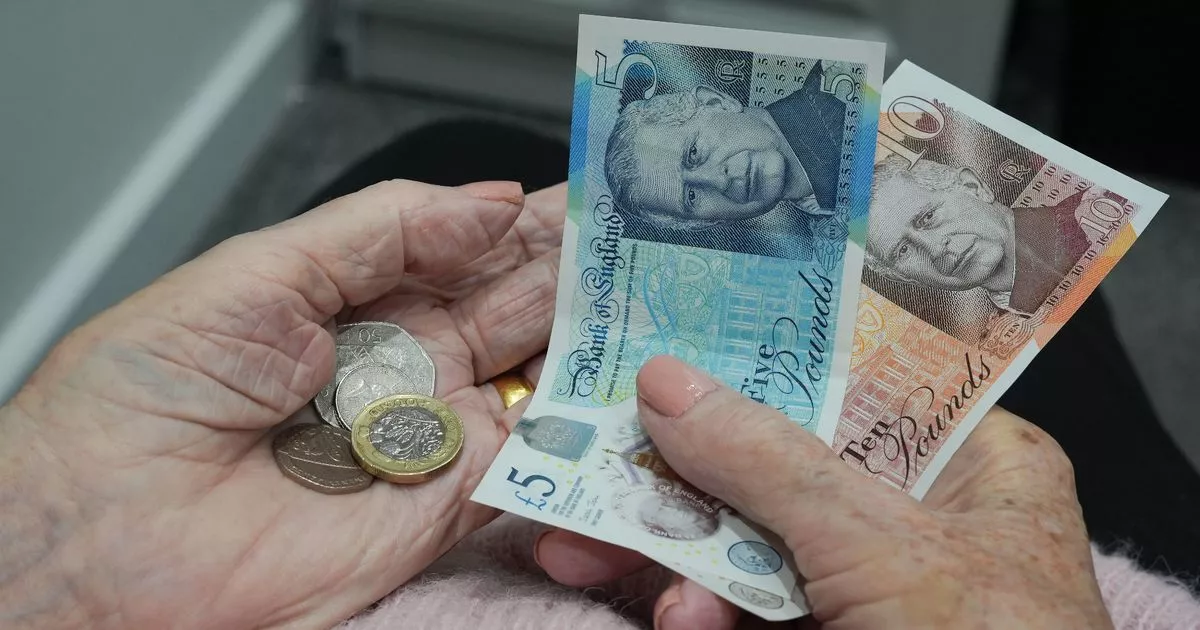The increase is based on one of three different factors The state pension increased by 4.1% earlier this year(Image: PA)
The state pension increased by 4.1% earlier this year(Image: PA)
Under the triple lock – the guarantee that the state pension rises each year in line with either inflation, wage increases or 2.5% – whichever is the highest – this year’s UK state pension hike could see pensioners taking home up to £538.79 more a year from April 2026.
Based on current figures, the state pension is currently forecast to rise by around 4.5% in April 2026 under the triple lock. However, there are concerns about how close this increase could bring the state pension to the current UK Personal Allowance tax threshold of £12,570.
Increases to the state pension are currently based on the highest out of inflation, wage growth or 2.5 per cent. This is what is known as the pension triple lock designed to ensure pensioners aren’t left behind as living costs continue to rise.
The government has committed to keeping this guarantee in place for the whole of this parliament. For money-saving tips, sign up to our Money newsletter here.
As inflation is expected to stay at around 4 per cent for the rest of the year and with wage pay growth at about 4.6 per cent, it looks like the state pension will see a rise of between 4.0 and 4.5%.
An increase of this would amount to an extra of between £478.92 and £538.79 for those on the new state pension.
For pensioners who reached pension age before April 6, 2016, and are therefore receiving the older pension, they will likely receive between £367 and £413 more a year.
In April 2025, the State Pension increased by 4.1% meaning those who qualify for a full new State Pension currently receive £230.25 a week, an increase from £221.20. This totals £11,973 annually.
Those on the older basic State Pension who reached the eligible age before April 2016 currently get £176.45 a week, up from £169.50.
This next rise could however increase the likelihood of recipients needing to pay tax as it will bring the amount closer to the standard Personal Allowance, the amount of income you don’t need to pay tax on, which is £12,570.
It would mean that anyone with even a very modest personal pension income would need to pay income tax as long as the tax threshold levels don’t change.
In order to see the rise, the Treasury must back the increase during their March review next year.
The state pension is a payment made every four weeks by the government. Currently, the state pension age is 66 for men and women born between October 6 1954 and April 5 1960.
However, for those born on, or after, April 5 1960 it will increase to 67 and for those born on, or after, April 5 1977 it will gradually rise to 68.

